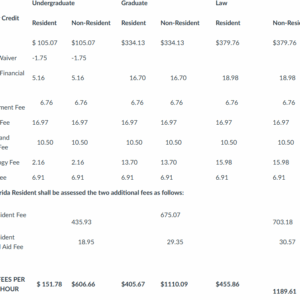Politics | October 12th, 2024
Debunking the Misinformation: Trump, Vance, and False Claims About Haitian Immigrants
By: Kaylin Jean-Louis

In a heated political climate with the 2024 election on the horizon, misinformation has once again become a tool to sway public opinion. Recently, former President Donald Trump and his running mate, JD Vance, made false accusations targeting Haitian immigrants in Springfield, Ohio.
Disturbing Claims Surface
During the second presidential debate on September 10, former President Donald Trump repeated false rumors that Haitian immigrants were abducting and eating pets in Springfield. This assertion gained national attention and profoundly impacted the Haitian community and beyond. Just five days later, JD Vance appeared on CNN with journalist Dana Bash, where he acknowledged the claims were false but continued to reiterate them.
In the CNN interview, he stated, “If I have to create stories so that the American media actually pays attention to the suffering of the American people, then that’s what I’m going to do.”
These statements quickly gained traction in certain political circles, showing how misinformation can spread and resonate with specific audiences, resulting in major consequences for the targeted communities.
Personal Impact on the Haitian Community
For Rhody Jean, a fourth-year theatre management scholar at Florida A&M University and Haitian American, these claims triggered painful reminders of his experiences with past prejudice.
“It felt a little traumatic in a sense. It’s like reliving your trauma all over again, and to hear the former head of the United States of, a whole country, at that, reiterating the same exact thing that I had to grow out of and go to therapy for…it was overwhelming definitely I will say and very disappointing,” Jean shared.
He elaborated on the long-term effects of such false narratives, reflecting on his encounters with bullying and stereotyping. These experiences led him to struggle with his identity, often distancing himself from his Haitian culture.
“I think for a while I didn’t know who I was because I spent so much time because of rhetorics like that, trying to be somebody else. In terms of removing my attachment to Haitian culture primarily started with food, and then it turned into me not even wanting to learn the language. I essentially stripped myself of my identity,” Jean said.
A Call for Education and Accountability
Fanisha Jean, president of the Haitian Cultural Club (HCC) at FAMU, expressed her frustration with the harmful impact of such rhetoric on the Haitian community, emphasizing the responsibility to counter it.
“These unverified assertions aren’t just offensive, they are harmful and they breed the kind of vile stereotypes that haunt the Haitian people. It heightens the stigma of immigrants, especially those coming from countries such as Haiti, and it causes unnecessary friction and conflict in multicultural environments such as our own,” Jean said.
She emphasized the need for accurate information and awareness to counter these damaging stereotypes. The Haitian Cultural Club, as she explained, is focused on educating others about Haitian heritage to counter these harmful narratives and foster a more accurate understanding of the Haitian community’s rich culture and history.
Seeking Accountability and Understanding
As the Haitian community navigates this damaging misrepresentation, seeking insights from those knowledgeable about the legal implications and broader societal effects of such rhetoric becomes increasingly essential. Louis Jean-Baptiste, attorney at Webster + Baptiste Law firm, emphasizes the potential harm these statements can inflict on an entire culture.
“I think it has the ability to cause chaos for an entire culture and probably put people in danger. Confrontations are going to happen now solely because of those statements,” he stated.
Jean-Baptiste also reflects on the calculated targeting of Haitians by political figures.
“I think in searching for a new target, they clearly believe that and calculated that Haitians were an easy target, and they could score political points with their base,” he stated.
Moreover, he raises concerns about accountability in the political sphere. He says, “I think it is defamatory, and the candidates should be liable for it.”
Resilience in the Face of Misinformation
While the misinformation spread by political figures is discouraging, Rhody Jean also sees it as an opportunity for his community to stand firm.
“I know, and I trust and I believe that it will only fortify us. Even though it will feel discouraging, it will feel like we are losing that battle, but one thing about Haitians since 1804, we are resilient,” he added.
As misinformation continues to circulate in this heated political climate, the Haitian community stands firm, ready to confront prejudice and reclaim their narrative.





